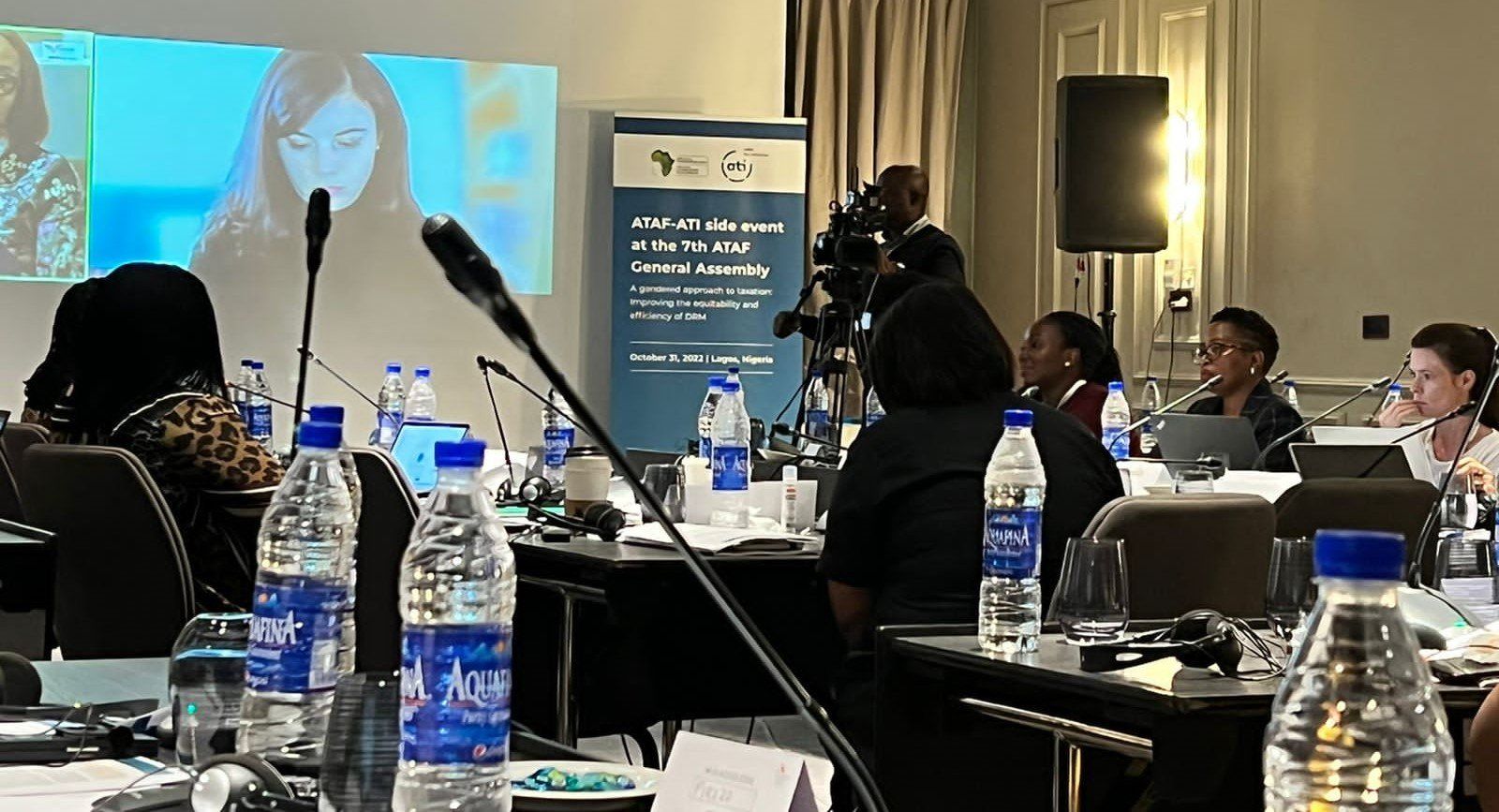[OUTCOME STATEMENT] Taxation with a gendered approach: Improving equity and efficiency
The research also showed that there have been positive developments in gender parity in those tax administrations participating in ATAF’s African Tax Outlook (ATO) publication, whereby revenue administration agencies have notably begun to institute progressive policies largely based on ATO recommendations.

Cet article est également disponible en français
Este artigo também está disponível em português
The African Tax Administration Forum (ATAF) and the Addis Tax Initiative (ATI) co-hosted a side event at the 2022 ATAF General Assembly on 31 October 2022 in Lagos, Nigeria on the theme of “A Gendered Approach to Taxation: Improving the Equitability and Efficiency of Domestic Resource Mobilisation (DRM)”. The aims of the event were to (i) advance policy debates on the link between taxation and gender equality, (ii) shed light on the nature of biases in tax systems, and (iii) promote the use of gender-aggregated data for informed policymaking by showcasing the works of supporting organisations in this area.
Welcoming participants and opening the event, Ms Jeneba Bangura (ATI Co-chair and Deputy Commissioner of the National Revenue Authority of Sierra Leone) and Ms Mary Baine (Deputy Executive Secretary of ATAF) highlighted the disproportionate socio-economic impact on women in the global economy, the growing importance of the link between taxation and gender equality, and the increasing need to mainstream the issue of gender equality into domestic revenue mobilisation (DRM) through the development and adoption of progressive tax systems.
In setting the agenda, the first substantive session explored biases in tax systems with the presentation of the main findings of the recent ATAF study “Are Tax Policies Developed to Reduce Gender Inequality in ATAF Member Countries?”, while research conducted by the United Kingdom’s Foreign, Commonwealth and Development Office (FCDO) revealed almost zero tax and gender programming in tax administrations. There was a real and urgent need to address both explicit and implicit gender biases in tax systems as these directly influence women’s participation in the labour market. Provisions in tax policies often treat men differently from women, and mainly to the detriment of women. However, with several cited examples from Africa indicating growing interest in this area of work, the FCDO Tax and Gender Programming Toolkit was thus developed specifically to assist those in designing such programmes.
A spotlight session on “Gender disaggregated data in policymaking” provided perspectives drawn from some of the research conducted by regional and international organisations, namely ATAF, the Organisation for Economic Co-operation and Development’s (OECD) Centre for Tax Policy Administration, and the Tax Policy Division of the International Monetary Fund (IMF). While there was clear evidence that explicit biases are on the way out, implicit biases nevertheless remain, related to lower female average incomes and its interaction with household taxation and progressivity.
The research also showed that there have been positive developments (particularly in the last few years) in gender parity in those tax administrations participating in ATAF’s African Tax Outlook (ATO) publication, whereby revenue administration agencies have notably begun to institute progressive policies largely based on ATO recommendations. Future work emanating from the research included the identification of best practices for reducing gender biases within tax systems, and the provision of practical guidance to countries on (i) the collection, access, and use of high-quality gender-disaggregated data and (ii) the inclusion of gender assessments in policy development processes and gender budgeting.
Conclusions drawn from the presentations and discussions at the event clearly demonstrated that:
a) Gender-sensitive and gender-transformative tax policies are important for widening the tax base and improving tax efficiency and equity as it addresses the cardinal principles of taxation;
b) There is still a lack of focus on gender-specific issues within the tax policies developed because of insufficient gender-disaggregated data;
c) Policymakers in ATAF and ATI member countries need to work together on developing frameworks that shape gender-sensitive and gender-transformative tax policies to address gender issues significant to Africa and beyond; and
d) Gender-sensitive and gender-transformative policies will enable the mobilisation of much-needed revenues to support social programmes that reduce the strain of unpaid work and increase gender-sensitive economic benefits.
In order to reach as broad a spectrum of participants, the well-attended event took a hybrid format that allowed for the physical participation of delegates to the ATAF General Assembly as well as a wider non-present / virtual audience of ATI and ATAF members, with simultaneous interpretation facilitating the discussions in English, French and Portuguese. Representatives of participating organisations included those from African revenue administrations, the ATAF Women in Tax Network (AWITN), the UK Foreign, Commonwealth & Development Office (FCDO), the Financing for Sustainable Development Office of the United Nations Department of Economic and Social Affairs (UNDESA), German Agency for International Cooperation (GIZ), the Network of Tax Organisations (NTO), the Centre for Tax Policy Administration of the OECD, the Fiscal Affairs Department of the IMF, and the Policy Research and Advocacy Division of the Tax Justice Network - Africa (TJNA).










